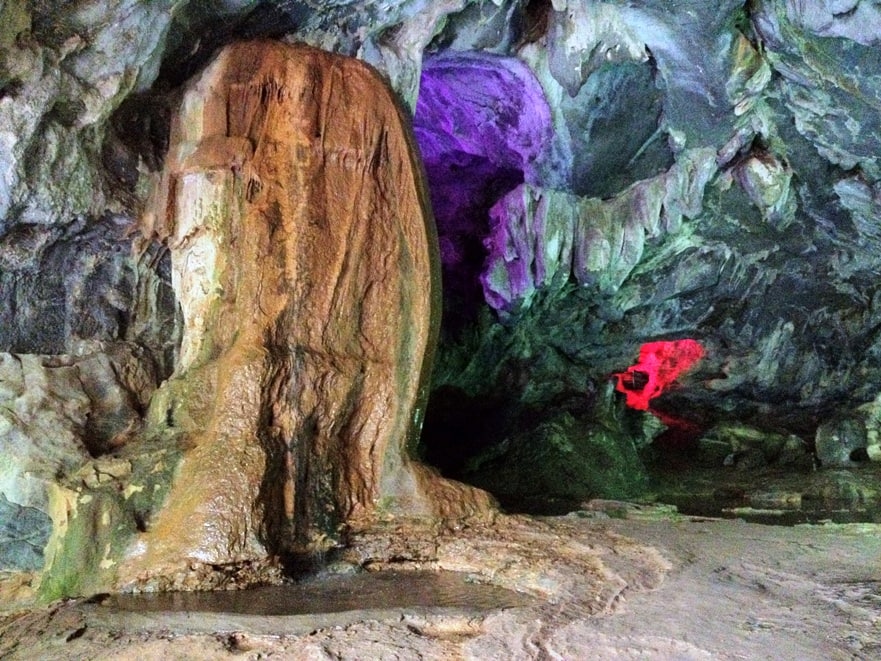Text translated from the blue book from Jinhua 2012 by B K Wee
Bi Guan (闭关) literally means closing the door to worldly matters. It is a purpose-driven exercise to achieve specific results in inner alchemy. The phrase 闭关 was first documented in the Jing Dynasty (晋朝). According to Taoist practitioners, there are major retreats and minor retreats. Major retreats are held in deep mountains, while minor retreats are conducted inside Taoist temples. It is not a necessary criterion that retreats are done in seclusion. When a group of people come together, maintain silence, and explore the effects on one another, this can also be considered a type of retreat. However, contact with other human beings and the outside world is limited and restricted. During a retreat, contact is maintained only with fellow retreat practitioners. From this point of view, there are group retreats, single retreats and retreats done in seclusion.
Certain conditions and environments are necessary for a retreat. During a retreat, one of the key goals is to master the ability to freely interchange and transform the following three types of energy: Cosmic Energy (宇宙能量), Reincarnation Energy (转世能量), and Existential Energy (本体能量). More specifically, the practitioner needs to master the process to transmute Jing (精) into Qi (气), from Qi (气) into Shen (神) and finally returning Shen (神) to Qi (气) and Qi (气) back to Jing (精). If this is not achieved, then the whole process cannot be deemed to be a proper retreat. There are also different types of retreat for the Shen (辟神谷), Qi (辟气谷) and Jing (辟精谷).
The Taoists believe that retreats have to follow certain principles and observe certain rules and methods so that the practitioner can be successful. Practitioners must attain a certain level of merit, virtue and wisdom before they are qualified to participate in a retreat. This is because their actions will have a beneficial impact on all sentient beings. Ordinary folks are only qualified to do the self-reflection and repentance practice (悔过).
If a practitioner has liver imbalances, then, even though he undertakes fasting, he or she must consume something that will nourish the liver. Practitioners with heart problems must also do the “single stroke tree practice” (单劈掌). For those with stomach and liver issues, they are recommended to also do the “double push meridian tree practice” (双推脉).

Comments
6 responses to “Taoist Retreat (闭关) and Bi Gu (辟谷)”
dear person,
i will be in china from april 21st onwards and would like to study with Taoist Master Wang Liping. Would you kindly send me information on how I may be able to do this. I see he is having a retreat end of December 2013, but would like to know if I could study with him this spring. Please get back to me as soon as you are able to with a schedule of his upcoming events and the possibilty of me meeting with him in China this spring as well. Thank you very much, arya azadi
[…] Text tradus din cartea albastra (Jinhua 2012) de B K Wee, si in limba romana de Viorica Mocanu sursa http://longmen.eu/2012/12/taoist-retreat-bi-gu/ […]
Dear Folks,
Would it be possible to have a healing session with Master Wing?
How would I go about it?
Hi, master Wang is not performing healing activities. I mean not like a doctor but some healing happens during the practice at the seminar time, still one needs to be in quite good shape to be able to participate. Therefore the basic answer to your question is no, it is not possible.
Thanks Richard,
Currently i am reading Thomas Cleary’s book. I took up chikung subsequent to an accident several years ago and it has been very beneficial.
I have progressed to Taichi also. However my overall level of fitness isnt that great.
Cleary’s book impresses me a lot. Do you think Master Wing’s regime is do-able for a man in his 50s?
Best Regards
SD
Actually I will be 49 this year so… Master himself is closing to 70 and he still practices. There is always room for better provided that you are willing enough. Of course what you read in the book is not applicable at our age (no rope over legs) master is tuning the practice to fit us all the time.